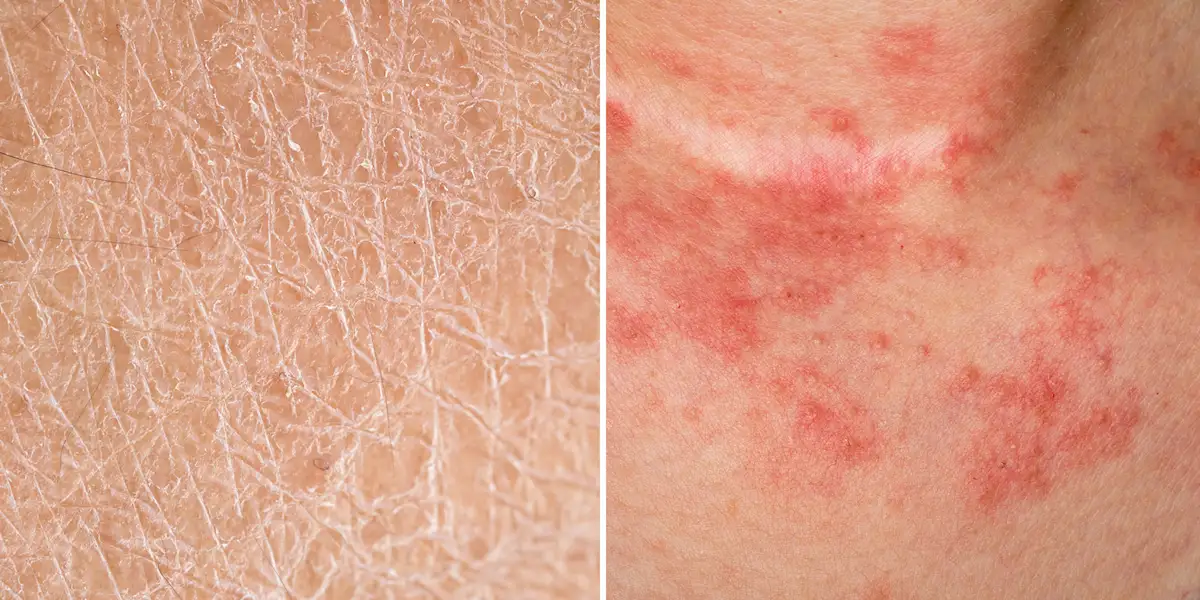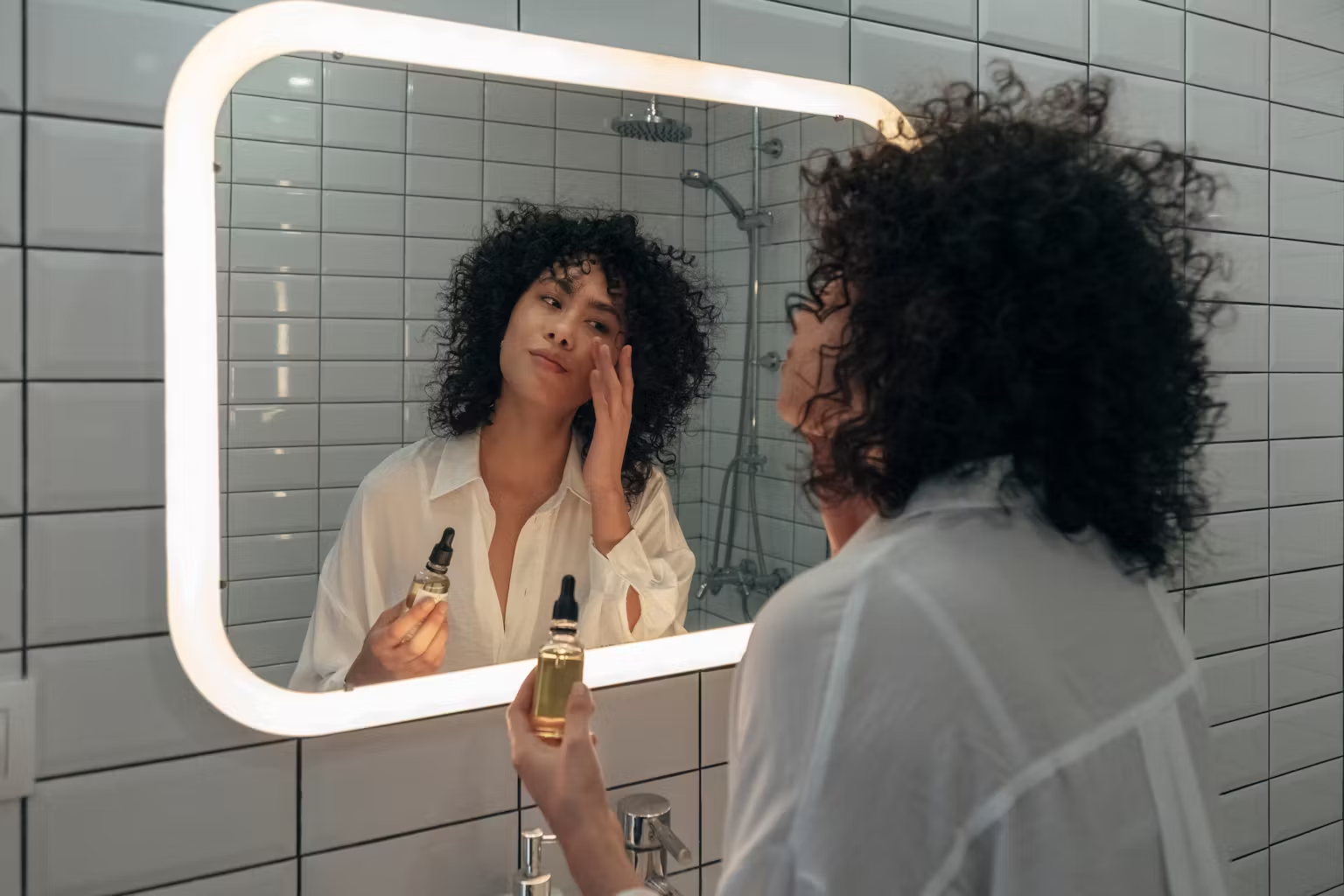Introduction
Skin dryness is a common issue that many people face, and it can be especially frustrating when it persists despite regular moisturizing. You’ve probably applied your moisturizer diligently, but your skin still feels tight, flaky, or dehydrated. So, why is your skin so dry even though you’re moisturizing?
Understanding this perplexing issue requires diving into the complex world of skincare, skin types, environmental factors, and the science behind moisturizers. In this article, we will explore the reasons why moisturizing might not be enough, how moisturizers work, and the steps you can take to fix the problem for good.
The Science of Skin and Moisturizing
Before we dive into the causes, it’s crucial to understand how moisturizers function. Your skin is made up of several layers, with the outermost one called the stratum corneum. This layer is composed of dead skin cells and lipids (fats) that act as a barrier, protecting the skin from moisture loss and harmful elements like bacteria and pollution.
Moisturizers primarily work by:
- Attracting water (humectants like glycerin and hyaluronic acid)
- Sealing in moisture (occlusives like petrolatum, dimethicone)
- Enhancing the skin barrier (emollients like ceramides, fatty acids)
When you apply a moisturizer, its primary job is to restore or maintain the skin’s moisture balance. However, various internal and external factors can prevent this from being effective.
1. Inadequate Moisturizer for Your Skin Type
Choosing the right moisturizer is crucial. Not all moisturizers are created equal, and what works for one skin type may not work for another.
Oily Skin:
For those with oily skin, lightweight, non-comedogenic (won’t clog pores) moisturizers are ideal. However, using a heavy, oil-based moisturizer can clog pores, exacerbate acne, and leave the skin feeling greasy rather than hydrated.
Dry Skin:
On the flip side, people with dry skin need a thicker, richer moisturizer that contains occlusive agents like petrolatum or dimethicone. These help to lock in moisture and prevent the skin from losing water throughout the day.

Sensitive Skin:
If you have sensitive skin, a moisturizer with calming ingredients like aloe vera, chamomile, or ceramides is preferable. Harsh chemicals or fragrances can aggravate sensitive skin, leaving it feeling dry and irritated.
If your moisturizer isn’t aligned with your skin type, it could be rendering your efforts futile.
2. Environmental Factors
Your skin is constantly exposed to external elements, and many environmental factors can contribute to dryness:
- Cold Weather: The winter months often bring dry, cold air that can sap moisture from your skin. Indoor heating also reduces humidity levels, exacerbating dryness.
- Sun Exposure: Prolonged sun exposure can damage the skin’s moisture barrier, leading to dehydration and dryness. UV rays break down collagen and elastin fibers, which compromises the skin’s ability to retain moisture.
- Air Conditioning: Like heating, air conditioning lowers the humidity in the air, which can draw moisture out of your skin.
If you live in a dry, cold, or highly polluted environment, these factors can make it difficult for any moisturizer to keep your skin hydrated.
3. Overwashing or Harsh Cleansing Products
It’s easy to overlook the impact of your cleansing routine on skin hydration. If you’re using a harsh cleanser or over-cleansing your skin, you could be stripping it of natural oils and damaging the skin barrier. This can leave your skin feeling dry, even if you’re moisturizing afterward.
- Harsh Cleansers: Many cleansers contain alcohol or sulfates that can strip your skin of its natural oils, leading to increased dryness.
- Over-Cleansing: Washing your face too often, or scrubbing too hard, can also disrupt the skin’s natural barrier, making it more prone to moisture loss.
A gentle, hydrating cleanser that maintains your skin’s natural oils is essential for keeping dryness at bay. Try using a creamy or oil-based cleanser instead of foaming ones, which tend to be more drying.
4. Underlying Skin Conditions
In some cases, chronic dryness may be linked to skin conditions that require specific treatment. These conditions can affect the skin’s ability to retain moisture, leaving it constantly parched.
- Eczema (Atopic Dermatitis): This condition is characterized by dry, inflamed, and itchy skin. It often requires specialized moisturizers, corticosteroids, or other treatments to control flare-ups.
- Psoriasis: Psoriasis causes thick, scaly patches of skin and can make it harder for moisturizers to penetrate the skin. Specialized moisturizers and treatments are needed for those with psoriasis.
- Keratosis Pilaris: This condition involves small, dry, and bumpy patches of skin that can make moisturizing difficult.
If your skin remains persistently dry despite your efforts, it may be time to consult a dermatologist to rule out any underlying conditions.
5. Improper Moisturizing Technique
How you apply your moisturizer can also play a crucial role in how well it works. Simply slathering on a layer of product may not be enough.
Best Moisturizing Practices:
- Apply on Damp Skin: To lock in more moisture, apply your moisturizer when your skin is still damp from washing or showering. This helps to trap the water on your skin and prevent it from evaporating.
- Use the Right Amount: Using too little moisturizer might not provide adequate hydration, while too much can make your skin feel greasy and clog pores. A pea-sized amount is usually sufficient for the face.
- Layering: If you have very dry skin, layering a humectant (like hyaluronic acid) under your moisturizer can help attract and lock in moisture.
:max_bytes(150000):strip_icc()/ins-moisturizers-with-spf-tout-update-0c5c4a0c57094f64840cb3a1453933b5.jpg)
6. Diet and Hydration
Even the best skincare routine can’t compensate for poor hydration or a nutrient-deficient diet. Your skin reflects what’s going on inside your body. If you’re not drinking enough water or eating a balanced diet rich in vitamins and healthy fats, your skin might struggle to stay hydrated.
Key Nutrients for Skin Health:
- Omega-3 Fatty Acids: These fats help maintain your skin’s moisture barrier and reduce inflammation. You can find omega-3s in fatty fish, flax seeds, and walnuts.
- Vitamins A and E: These vitamins help with skin regeneration and repair, making them essential for dry skin. Foods like carrots, sweet potatoes, and leafy greens are good sources.
- Vitamin C: Known for its ability to boost collagen production, vitamin C can help keep your skin plump and hydrated.
It’s essential to hydrate internally by drinking plenty of water and eating a nutrient-dense diet to keep your skin glowing and moisturized.
7. Dehydration vs. Dry Skin: Understanding the Difference
Dry skin and dehydrated skin are often used interchangeably, but they are not the same. Dry skin refers to a lack of natural oils (sebum), while dehydrated skin refers to a lack of water content in the skin. Dehydrated skin can feel tight, dull, and flaky, much like dry skin, but it’s a separate issue.
Dehydration often results from environmental factors, not enough water intake, or overuse of drying products. Dry skin, on the other hand, can be caused by factors like genetics or harsh skin treatments.
If you have dehydrated skin, look for moisturizers that contain humectants like glycerin or hyaluronic acid, which can draw moisture into the skin. For dry skin, occlusive agents like petroleum jelly or thick creams are necessary to lock in the moisture.
8. Overuse of Active Ingredients
Active ingredients like retinoids, exfoliating acids (AHAs and BHAs), and benzoyl peroxide are often used to treat acne, aging, and hyperpigmentation. However, overusing these products can lead to dryness and irritation.
- Retinoids: These can speed up cell turnover but may strip the skin’s moisture.
- Exfoliating Acids: While exfoliating acids help remove dead skin cells, they can also thin the skin and make it more prone to dryness if overused.
If you’re using these active ingredients, make sure to apply a heavy moisturizer afterward to counterbalance any drying effects.
Conclusion
If your skin is still dry despite using moisturizer, the solution may lie in tweaking your skincare routine, understanding your skin type, and addressing any underlying issues. The combination of using the right products, maintaining a healthy diet, hydrating properly, and protecting your skin from environmental stressors will ensure that your skin remains moisturized and healthy.












































